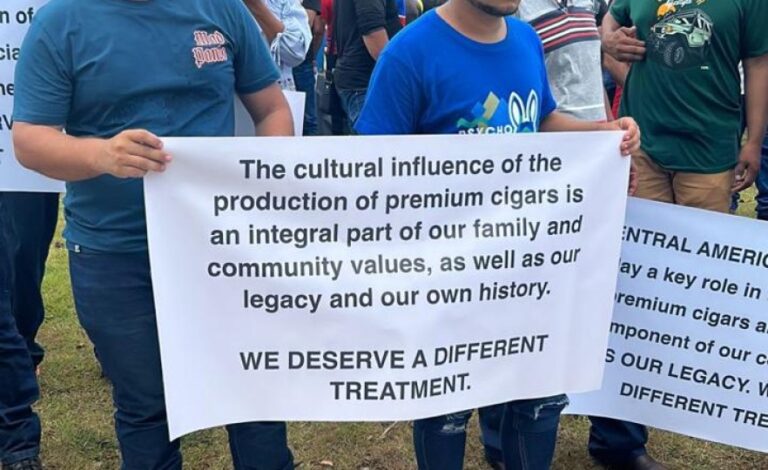A significant gathering of premium tobacco producers and workers from Colombia, Panama, Honduras, and Nicaragua staged a protest on February 5th outside the Panama Convention Centre, where the tenth Conference of the Parties (COP) of the World Health Organization’s (WHO) Framework Convention on Tobacco Control (FCTC) is currently underway.
The FCTC aims to safeguard present and future generations from the harmful effects of tobacco consumption and exposure to tobacco smoke by reducing both demand and supply. Article 17 of the Convention mandates parties to promote economically viable alternatives to tobacco, emphasizing cooperation with international and regional organizations.
During the protest, farmers expressed discontent over what they perceived as “exclusion” and “lack of transparency” in the WHO’s decisions regarding measures on tobacco cultivation. They stressed the importance of respecting a tradition dating back over 500 years and urged for “common sense” to find consensus on policies without jeopardizing millions of families’ livelihoods.
Additionally, concerns are echoed among tobacco growers in Pakistan, where tobacco cultivation has long been a significant contributor to the economy, particularly in terms of export revenue. Growers fear that Pakistan’s ratification of the FCTC could have severe economic repercussions, impacting millions of families and the domestic economy.
Fawad Khan, a spokesperson for Mustehkam Pakistan, an advocacy platform for marginalized communities, warned that continued FCTC ratification could drive tobacco growers to extreme measures, given the sector’s substantial contribution to government revenue.
Meanwhile, Mushfiq Khan, head of the All Pakistan Tobacco Farmer Association, highlighted the potential negative consequences of reducing tobacco demand and supply, including loss to the national exchequer and increased involvement in criminal activities by tobacco farmers.
Overall, tobacco growers emphasize the need for inclusion in discussions concerning their future livelihoods and advocate for a seat at the table when decisions are being made.


